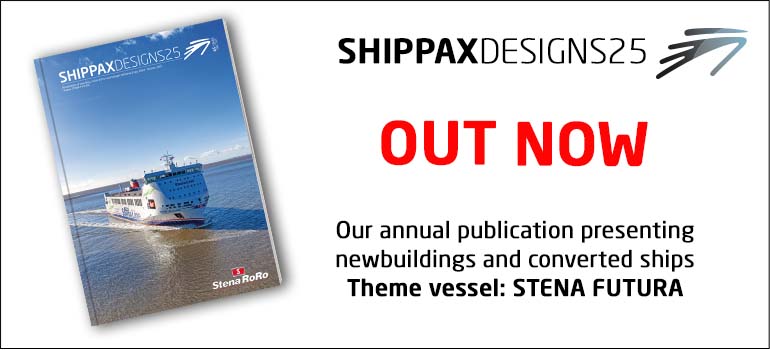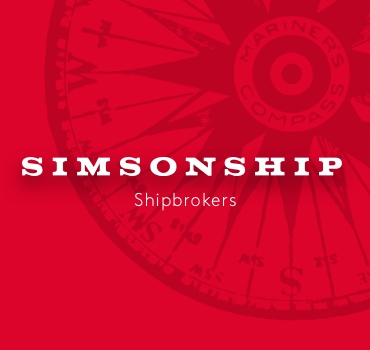Accelerating digitalisation of maritime trade and logistics: a call to action
Seaports are critical infrastructures to keep supply chains moving and economies across the world functioning. This becomes especially visible in times of global crisis. A great variety of business and government actors interact in port communities to ensure multimodal flows of vital medical and food supplies, critical agricultural products, energy streams and other goods and services reach their intended destinations in time.
Port community interactions comprise physical interactions - such as cargo handling operations, vessel-related services and supplies and multimodal transfers - as well as exchanges of data that facilitate clearance of cargo between jurisdictions. Being part of larger transport and logistics supply chains and representing clusters of companies and businesses in themselves, ports are well-placed to fully grasp the potential generated by the latest wave of technological innovation and integration, so that physical and data interactions occur in a safe, secure, efficient and overall sustainable manner.
The COVID-19 crisis has painfully demonstrated the heterogeneous landscape that currently exists across ports worldwide. While some port communities seized the opportunities of the fourth industrial revolution and developed into full-fledged ‘smart’ ports, many others have barely grasped the essentials of digitalisation and continue to struggle with larger reliance on personal interaction and paper-based transactions as the norms for shipboard, ship-port interface and port-hinterland based exchanges. As an illustration, only 49 of the 174 Member States of the International Maritime Organization have functioning Port Community Systems to date, systems which are considered the cornerstone of any port in the current digitalised business landscape.
With the world’s attention now focused on exiting from lockdowns and preparing for a ‘new normal’, there is an urgent need for inter-governmental organisations, governments and industry stakeholders concerned with maritime trade and logistics to come together and accelerate the pace of digitalisation so that port communities across the world can at least offer a basic package of electronic commerce and data exchange, in compliance with all relevant contractual and regulatory obligations.
To realise this overall ambition, the International Association of Ports and Harbors (IAPH), BIMCO, the International Cargo Handling Coordination Association (ICHCA), the International Chamber of Shipping (ICS), the International Harbour Masters’ Association (IHMA), the International Maritime Pilots Association (IMPA), the International Port Community Systems Association (IPCSA), the International Ship Suppliers’ Association (ISSA), the Federation of National Associations of Ship Brokers and Agents (FONASBA) and the PROTECT Group launch a call to action along the following priorities:
1. To assess the state of implementation and find ways to enforce the already mandatory requirements defined in the International Maritime Organization’s Facilitation (IMO FAL) Convention to support transmission, receipt, and response of information required for the arrival, stay, and departure of ships, persons, and cargo, including notifications and declarations for customs, immigration, port and security authorities, via electronic data exchange, making the transition to full-fledged single windows.
2. To ensure harmonisation of data standards beyond the IMO FAL Convention to facilitate sharing of port and berth-related master data for just-in-time operation of ships and optimum resource deployment by vessel services and suppliers, logistics providers, cargo handling and clearance, thereby saving energy, improving safety as well as cutting costs and emissions. This can be achieved through use of the supply chain standards of the International Standardization Organization, the standards of the International Hydrographic Organization as well as the IMO Compendium on Facilitation and Electronic Business.
3. To strive for the introduction of Port Community Systems and secure data exchange platforms in the main ports of all Member States represented in the International Maritime Organization.
4. To review existing IMO guidance on Maritime Cyber Risk Management on its ability to address cyber risks in ports, developing additional guidance where needed.
5. To raise awareness, avoid misconceptions, promote best practices and standardisation on how port communities can apply emerging technologies such as artificial intelligence, advanced analytics, internet of things, digital twins, robotics process automation, autonomous systems, blockchain, virtual reality and augmented reality.
6. To facilitate the implementation of such emerging technologies and other innovative tools to increase health security in port environments, allowing port and marine employees, contractors, and the vessel crew to work and interact in the safest possible circumstances.
7. To develop a framework and roadmap to facilitate the implementation and operationalisation of digital port platforms where authorised port community service providers and users can share data under secure data sharing protocols, enabling these platforms to connect with hinterland supply chains as well.
8. To establish a coalition of willing stakeholders to improve transparency of the supply chain through collaboration and standardisation, starting with the long overdue introduction of the electronic bill of lading.
9. To set up a capacity building framework to support smaller, less developed, and understaffed port communities, not only with technical facilities but also with training of personnel. Quality data exchange requires a trained workforce with mid- and long-term perspectives to build, implement, support, and sometimes override technology.
Working on these priorities requires collaboration between maritime supply chain industry stakeholders and government. Above all, it calls for inter-governmental collaboration as the acceleration of digitalisation will require change management at local, regional, and national levels. National trade facilitation committees implemented under the WTO Trade Facilitation Agreement could be an excellent instrument for member states and port authorities to drive the change.
ABOUT ICHCA - International Cargo Handling Coordination Association
Established in 1952, ICHCA International is an independent, not-for-profit organisation dedicated to improving the safety, productivity and efficiency of cargo handling and movement worldwide. ICHCA’s privileged NGO status enables it to represent its members, and the cargo handling industry at large, in front of national and international agencies and regulatory bodies, while its Technical Panel provides best practice advice and develops publications on a wide range of practical cargo handling issues.
Operating through a series of national and regional chapters – including ICHCA Australia, ICHCA Japan and ICHCA Canarias/Africa (CARC) – plus Correspondence and Working Groups, ICHCA provides a focal point for informing, educating, lobbying and networking to improve knowledge and best practice across the cargo handling chain.
jun 04 2020
Most read
The world’s largest battery installation on a RoPax got its final approval from the class
feb 18 2026


















